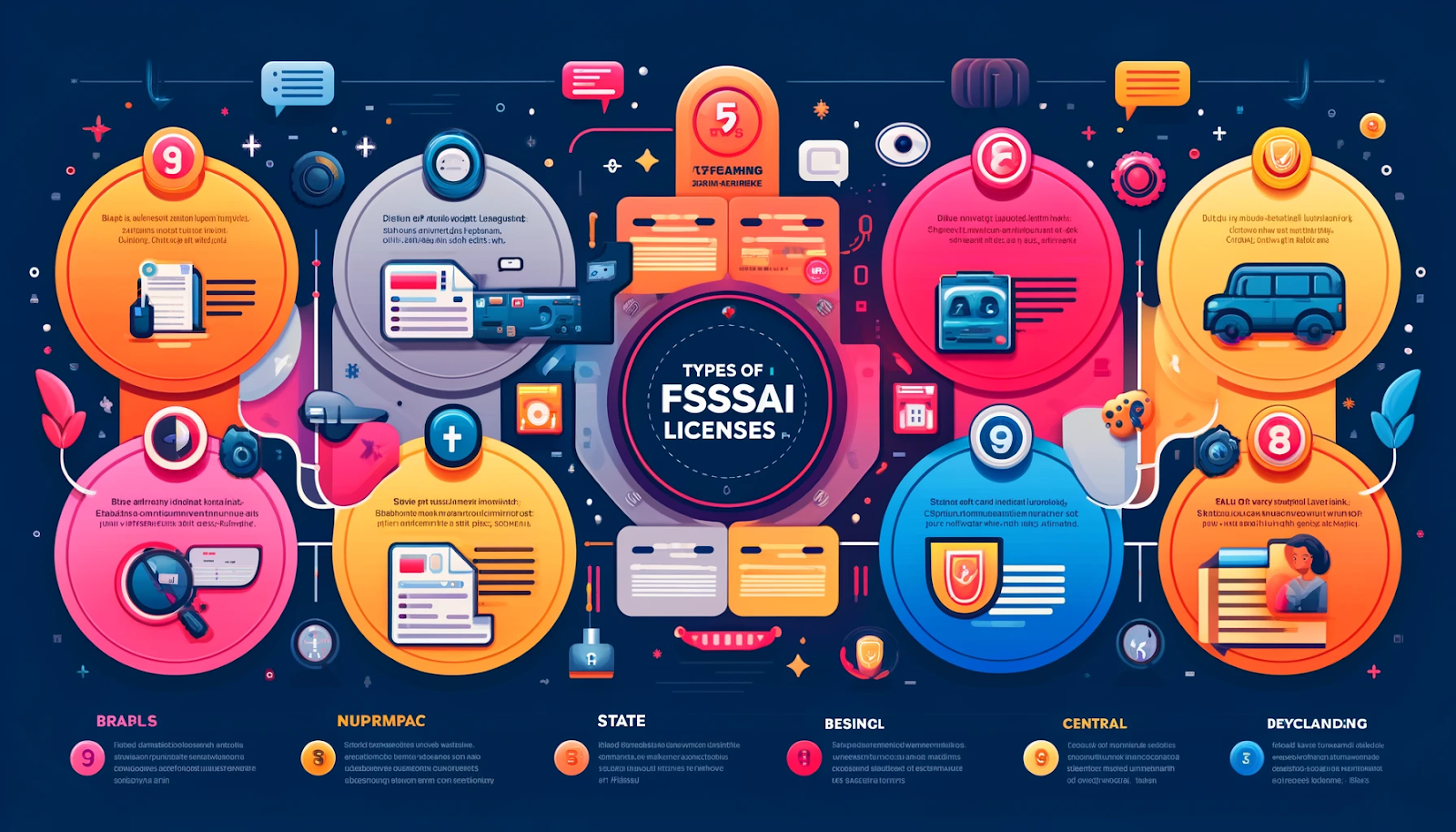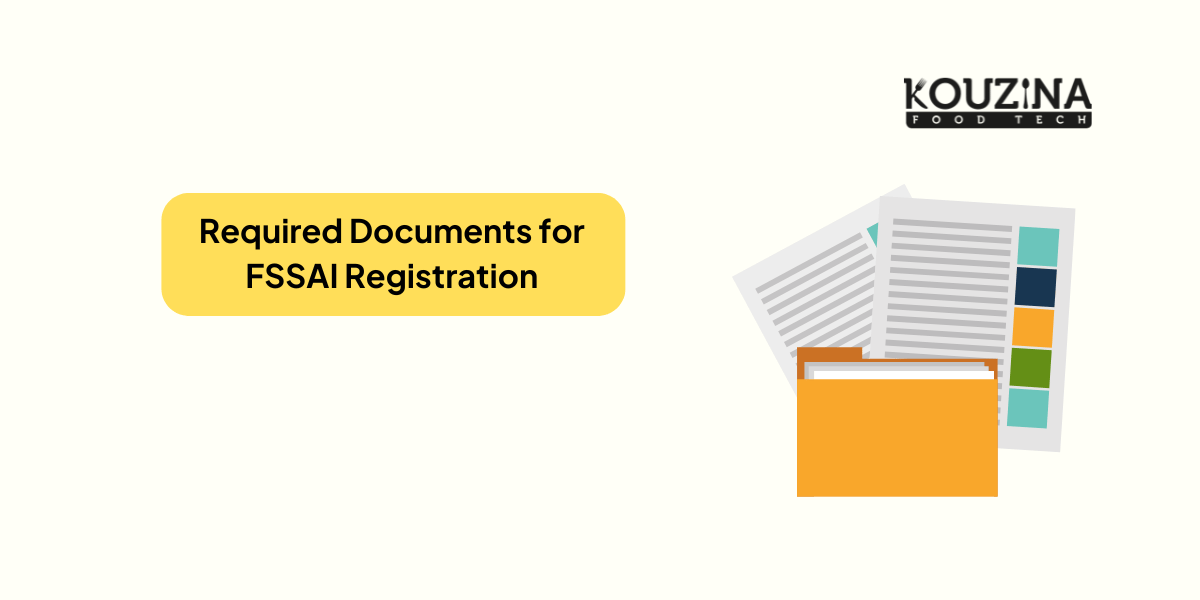
Thinking of starting your cloud kitchen in India? Before you take your first order, there’s one crucial step you can’t afford to skip: getting an FSSAI license.
Issued by the Food Safety and Standards Authority of India, this license is mandatory for any food business, whether you're operating from a commercial kitchen or your home. It ensures that your food is safe, hygienic, and compliant with legal regulations.
If you're launching a cloud kitchen in India, one non-negotiable step stands between your recipes and revenue: securing an FSSAI license. It’s not just a compliance checkbox — it’s your legal foundation. The Food Safety and Standards Authority of India mandates that every food business, from a single-person home kitchen to a multi-brand virtual kitchen setup, must be licensed before serving a single order.
This isn’t just about staying on the right side of the law. It’s about trust, hygiene, credibility, and your ability to get listed on delivery platforms like Zomato and Swiggy. No license, no visibility. No visibility, no business.
With India’s food delivery industry booming and cloud kitchens offering a lean, scalable way to enter the market, legal hygiene is your launchpad. This guide walks you through what license you need, how to apply on FoSCoS, the documents required, and how to avoid costly mistakes many first-time founders make.
A cloud kitchen — also known as a ghost kitchen or virtual kitchen — is a delivery-only food business that operates without a physical dine-in space. These kitchens are designed for scale, speed, and efficiency. They use a professional kitchen setup but rely entirely on delivery platforms like Zomato, Swiggy, or their own ordering channels to reach customers.
This model has exploded in India over the past few years because it offers a lower barrier to entry for food entrepreneurs. Without the need for expensive storefronts or full-service staff, cloud kitchens can focus purely on food quality, delivery speed, and smart branding.
Key features of a cloud kitchen model:
It’s not just a trend — it’s a fundamentally different way to build and scale a food business in a digital-first market.
And if you're entering the space, there’s one step that makes or breaks your ability to legally operate: your FSSAI license.
An FSSAI license serves several vital purposes for your cloud kitchen. Firstly, it ensures legal compliance. Operating without this cloud kitchen license license can result in substantial fines, legal action, or even the closure of your business.
Secondly, it establishes credibility. The FSSAI certification ensures that customers can trust that your food is prepared under hygienic and safe conditions. This builds crucial trust and enhances your brand image.
Lastly, most major food delivery platforms, like Zomato and Swiggy, require an FSSAI license to listfor listing your kitchen. Without it, you cannot reach a wide customer base through these platforms.
If you have several cuisine concepts in mind, a multi-restaurant cloud kitchen allows you to manage them all from one location. Like the example above, Kouzina operates several food businesses, including well-known names such as Indiana Burgers and Warm Oven, which are also available for franchising.
Next, we’ll explore the different types of FSSAI licenses based on your cloud kitchen’s size and turnover.
The type of FSSAI license you need depends on your cloud kitchen's annual turnover and operational scale. FSSAI categorizes cloud kitchen licenses into three main types:

This registration applies to small-scale cloud kitchens. Your annual turnover must not exceed INR 12 lakhs. The application process for basic registration is relatively straightforward. It requires minimal documentation. This is ideal for home-based cloud kitchens just starting.
Cloud kitchens with an annual turnover between INR 12 lakhs and INR 20 crores require a State FSSAI License. The respective State Government issues this license. The application process is more detailed than basic registration. It involves additional documentation and, in some cases, an inspection.
If your cloud kitchen's annual turnover exceeds ₹20 crores, you require a Central FSSAI License. This also applies if you operate in multiple states or engage in importing/exporting food products. The Central License involves the most rigorous application process. It ensures compliance with national food safety standards.
Also read: Applying for FSSAI License and Swiggy Registration for Cloud Kitchen in Guwahati
Here’s a breakdown of the necessary documents you’ll need to gather for the FSSAI application process.
Gathering the necessary documents before applying simplifies the process. The exact requirements may vary slightly based on the cloud kitchen license type. However, common documents include:

Now, let’s walk through the step-by-step process to apply for your FSSAI license with ease.
Obtaining your FSSAI license, which requires attention to detail, is a streamlined process conducted largely online through the FSSAI's Food Safety Compliance System (FoSCoS) portal. Following these steps diligently will help ensure a smooth application and approval.

Before commencing the application, accurately determine whether your cloud kitchen requires a Basic Registration, a State License, or a Central License based on your projected annual turnover. This initial assessment is critical for selecting the correct application form and documents.
Preparation is key to a hassle-free application. Collect all necessary documents as per FSSAI guidelines. These generally include:
Visit the official FSSAI FoSCoS website (foscos.fssai.gov.in). You will need to create an account by registering your email address and mobile number. Once registered, log in to the portal to initiate your application.
Select the appropriate application form based on your determined license type:
Fill out the online form meticulously, providing accurate details about your cloud kitchen's name, address, contact information, type of food services offered, and projected annual turnover. Double-check all entries to avoid errors.
Scan & upload all the previously gathered documents to the FSSAI portal. Ensure that each document is clear, legible, and in the specified format (e.g., PDF, JPEG) and size as required by the FSSAI system. Incomplete or unclear documents can result to delays or rejection.
The application fee varies depending on the type of license and its validity period (typically 1 to 5 years).
Make the payment online through the FoSCoS portal using the available payment options, such as net banking, credit/debit card, or UPI.
After completing the form, uploading documents, and paying the fee, carefully review your entire application.
Apply after you're satisfied. An application reference number and an acknowledgment receipt will be sent to you. For monitoring the progress of your application, this number is essential.
The FSSAI authorities will thoroughly review your submitted application and documents. For State and Central licenses, a Food Safety Officer may inspect your cloud kitchen premises.
During this visit, they will verify the information provided in your application and assess your adherence to food safety and hygiene standards. Ensure your kitchen is clean, well-maintained, and compliant with all FSSAI regulations.
Upon successful verification and, if applicable, a satisfactory inspection, the FSSAI will issue your license certificate. You will typically receive the FSSAI license certificate electronically, which you can then download and display as needed.
This certificate confirms that your cloud kitchen is legally authorized to operate and complies with the prescribed food safety standards.
Read more: Opening a Cloud Kitchen Business: Applying for FSSAI License
Once you have your license, maintaining compliance and handling renewals is key. Let’s get into that next.
Obtaining the FSSAI license is not a one-time event; it requires ongoing adherence to food safety standards and timely renewal.
Consistently ensure your kitchen, equipment, and staff uphold the highest levels of cleanliness and hygiene. Implement robust food safety protocols, including proper food handling, storage, temperature control, and waste disposal. Regular internal audits can help maintain these standards.
FSSAI licenses typically have a validity period ranging from one to five years. To avoid fines and guarantee continuous operation, you must apply for renewal at least 30 days before the expiration of your present cloud kitchen license. The renewal procedure is similar to the initial application process for the FoSCoS portal.
Ensure your staff are adequately trained in food safety protocols. It is also advisable that all food handlers possess valid medical fitness certificates to ensure they do not pose a risk of contamination. Some FSSAI categories require at least one employee to have a FoSTaC (Food Safety Training & Certification).
Kouzina's implementation of these tactics has enabled all its franchisees to have a streamlined supply chain that reduces waste and optimizes inventory management for cost control and operational effectiveness.
It’s essential to understand the penalties for non-compliance, as they could impact your cloud kitchen.
Operating a cloud kitchen without a valid FSSAI license or failing to comply with its regulations carries significant penalties under the Food Safety and Standards Act, 2006:
These penalties underscore the critical importance of obtaining and maintaining your FSSAI license.
Obtaining an FSSAI license is a crucial first step in establishing a successful cloud kitchen in India. It legitimizes your operations, builds customer trust, and ensures adherence to crucial food safety standards.
By understanding the types of licenses, required documents, and the application process, you can navigate this essential requirement effectively. Prioritize food safety and regulatory compliance from the outset.
This commitment will pave the way for your cloud kitchen's growth and reputation in the competitive food delivery market.
For business professionals seeking to be part of an established cloud kitchen business, Kouzina offers a successful multi-brand model with an investment range of ₹ 10-15 lakhs. By partnering with Kouzina, you gain access to a network of industry professionals & a dedicated team that supports every step of setting up your business, from obtaining a cloud kitchen license to marketing. Join this great adventure and contact us today to get started!